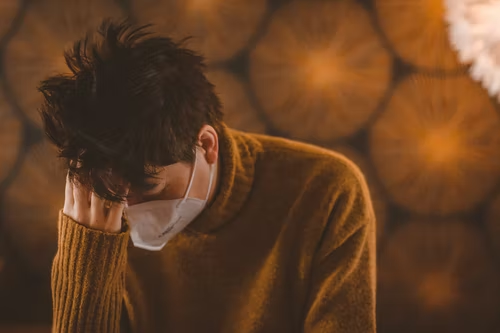How to Avoid Depression

Depression is a mental illness that affects millions of people all over the world. It can cause feelings of sadness, hopelessness, and worthlessness. In addition, depression can lead to a decreased appetite, insomnia, and suicidal thoughts. If you are experiencing these symptoms, it is important to seek help from a professional. However, there are also things that you can do on your own to avoid depression and improve your mood. In this blog post, we will discuss some tips for avoiding depression and improving your mental health!
Depression can make a person feel worthless and fail to function well at work, school, or in the family. Depression may cause death at its worst. Every year, around 800 000 individuals die by suicide. Suicide is the second most common cause of death among 15-29-year-olds.
The majority of people who suffer from depression require treatment in order to get better. Unfortunately, less than half of those who need it receive any therapy. A lack of resources, a shortage of trained healthcare providers, and social stigma linked with mental illnesses are all barriers to effective care.
When people are newly diagnosed with depression, they frequently want to know what will prevent it from coming back. Depression is a mood disorder that can have an impact on a person's daily activities. It has signs such as loss of interest in activities you used to like, lack of appetite or overeating, sleep difficulties, and low energy level.
Aside from the symptoms that make you feel terrible, individuals with depression face additional hazards of having an accident or taking their own lives. This is when someone requires assistance now.
It’s important to understand that depression is caused by a chemical imbalance in the brain. If you have this problem, you may have difficulty getting better without treatment. It’s important to learn ways to cope with your symptoms and reduce the risk of another episode of depression,
Depression is not a sign of weakness. Take pride in your strength enough to seek assistance and stay with therapy. Remind yourself that recovery takes time, and don't expect perfection. It's normal to self-reflect in a healthy way, but be careful not to be too harsh on yourself. Avoiding depression triggers is the most important strategy for avoiding
People who are unhappy often dwell on the negative. Engage in activities that make you feel good about yourself, such as telling others about your abilities and achievements, or volunteering for a cause that is important to you.
Consult your doctor or psychiatrist for a prescription to find out which one is appropriate for you. Most individuals who have depression respond well to medication.
A combination of talk therapy and antidepressant medications has helped many people beat depression. So it’s important not to stop either one when you start feeling better. If it has been helpful in treating your depression symptoms as well as preventing a relapse from occurring after you've started feeling better again.
Take your medicine as directed. Don't skip a dose or cease taking them suddenly, even if you feel better. This can lead to antidepressant withdrawal and possibly a relapse in your depression symptoms.
Make sure to keep going to therapy even after your depression gets better. This can help you stay on track and prevent relapses. If you notice you're responding to a situation in the same way you did when you were depressed, take note of how it makes you feel, how it affects your thoughts, and what you're doing to cope with it.
One Healthline reader who has struggled with depression since childhood remarks, “I've been on medicine since I was 12 and my mother had me see a psychiatrist once a month as part of my treatment plan.” “Even though I'm an adult now, I still see a therapist and take medication every day to avoid relapse,
People who schedule their leisure time activities are less likely to focus on their problems and more positive about themselves. Even if you don't really want to do it, make plans with friends and follow through on them. You'll be grateful you did once you're out of the house.
If symptoms continue to reappear, talk to your doctor or therapist about changing your therapy. Don't put off seeking assistance until the situation gets worse.
Weekly sessions can help you deal with stressful situations, confront your negative thoughts, overcome barriers, and build self-esteem. All of which are important elements in the treatment of depression.
Other forms of therapy, on the other hand, have also been beneficial. It's a secure atmosphere in which you may convey your emotions with others who understand what you're experiencing and can assist you feel less lonely.
If you miss a few appointments or run out of medicine, your chances of experiencing depression again are increased. To ensure you never run out of medicine without realizing it first, sign up for automatic refill reminders via your pharmacy's website or phone app.
If you don't get enough sleep, your body will not be able to repair itself as it should. This can lead to greater health concerns like diabetes and heart disease. Getting insufficient amounts of sleep also makes you more prone to illness – both physical and mental. They may only make things worse by depleting your body of nutrients, preventing you from getting healthier, and feeling better.
It's best to strike a balance between eating healthy and indulging your hunger. Make sure you eat nutritious meals, exercise regularly, and get enough sleep. Exercising may help with stress reduction and improving your mood.
Avoiding depression-inducing situations is possible, and the most effective approach is to get enough sleep, exercise regularly, and eat a nutritious diet. Here are some more things you may do to keep depression at bay.
Depression has traditionally been seen as a difficult-to-treat disease that is exceptionally tough to overcome. However, if you have the proper solutions, you can avoid depression.
If you are currently taking antidepressants, don't stop either one when you start feeling better. If it has been helpful in treating your depression symptoms as well as preventing a relapse from occurring after you've started feeling better again.
Make sure to keep going to therapy even after your depression gets better. This can help you stay on trackA significant portion of the depression treatment entails modifying one's thinking. When you're depressed, you imagine the worst-case scenario and dwell on the negative. Confronting these unpleasant ideas is a common element of depression therapy. You believe that no one loves you, yet what proof do you have for this? You believe that you are a useless,





